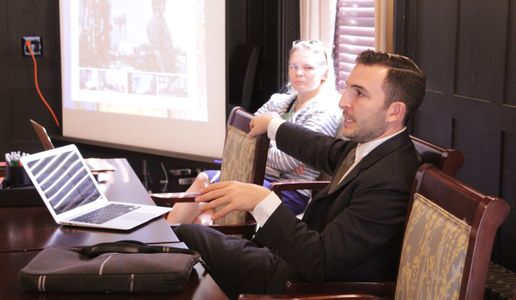FMHT: Justin Gest on White Working Class Politics
The Initiative on Forced Migration and Human Trafficking, a research initiative at the Frederick S. Pardee School of Global Studies, hosted author and Assistant Professor of Public Policy at George Mason University’s Schar School of Policy and Government Justin Gest for a talk on the politics of the white working class of both the United States and United Kingdom in relation to immigration and inequality.
Gest, the author of The New Minority: White Working Class Politics in the Face of Migration and Crisis, discussed how white working class people, once at the middle of British and American societies, have drifted to the margins and are transforming their countries’ politics in response to demographic change.
“What intrigued me was the seemingly equal marginality of white working class people both in Europe and the United States,” Gest said. “They feel outnumbered — they feel like a minority in their country — even though they are still, by far and away, the demographic majority from an ethnicity or racial perspective. They sense this loss of numbers, in the sense that they are outnumbered locally.”
In The New Minority, Justin Gest reports findings from original surveys and full-immersion fieldwork among the white working class people of once thriving industrial cities to draw impactful conclusions about their political behavior in the face of controversies over immigration and inequality. Gest made the case that tension between the vestiges of white working class power and its perceived loss have produced the unique phenomenon of their radicalization.
“There’s also this sense of externality — they feel external from the government and from the state resources that could and once have helped them,” Gest said. “They feel like they have a less of a hand in their government and that they are increasingly external from it.”
Gest discussed what led a group with enduring numerical power to, in many instances, consider themselves a “minority” in the countries they once defined.
